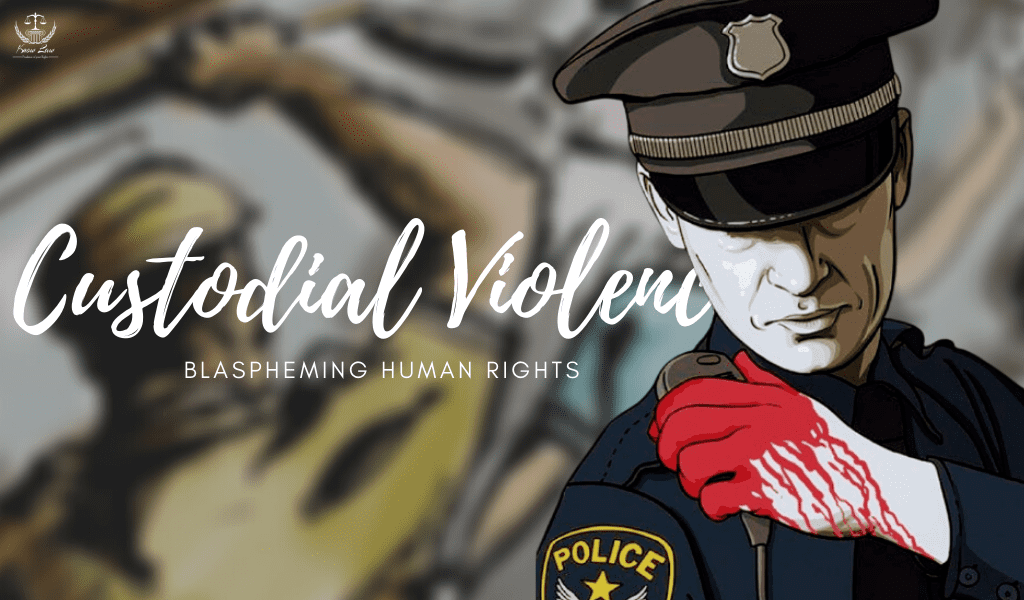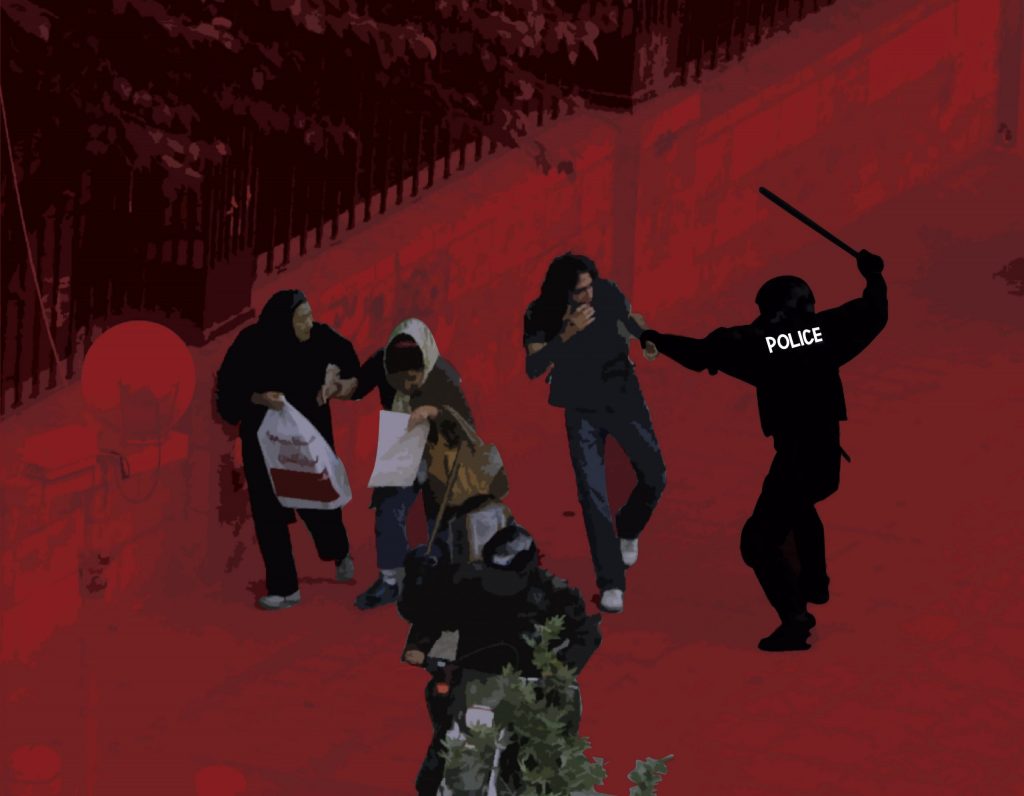
Custodial violence and abuse of power by the police is a cause of concern; to protect the human rights of prisoners. It is regarded as one of the most serious offenses which are left unreported. Most of the cases of custodial deaths are declared as suicide and the case is not even filed. Violence is always used to suppress the freedom of speech.
Power tends to corrupt and absolute power corrupts absolutely.
Sir John Dalberg-Acton
Custodial torture includes rape, physical violence, and harassment. There is a need to take up this issue seriously; one should know the rights which are given to us by our Constitution and UDHR. The Constitution of India guarantees various fundamental rights to each and every citizen. The rights of an arrested person are not shed off. The use of third-degree and other torturing techniques is the biggest threat to the administration of justice. The abuse of power by police officials needs to be curbed. The custodial violence results in sheer violation of Human Rights. The use of excessive force should be prohibited.
Custodial Violence
In the case of D. K Basu v. State of West Bengal, the Supreme Court held that “Custodial torture is a naked violation of human dignity. The situation is aggravated when violence occurs within the four walls of a police station by those who are supposed to protect citizens”. The Constitution of India provides us certain rights among which the right to dignity is very important.
As per the National Human Rights Commission, (from 2001 to 2010) 14,231 persons died in police and judicial custody in India. This includes 1,504 deaths in police custody and 12,727 deaths in judicial custody from 2001-2002 to 2009-2010. These deaths are the result of the growing custodial violence. But this is not exhaustive data; some of the cases are not even filed. The fundamental principles of criminal jurisprudence are enshrined in the Constitution of India, the Bill of Rights, and the Universal Declaration of Human Rights.

Article 5 of UDHR states that “No one shall be subjected to torture or to cruel, inhuman or degrading treatment or punishment”. In various landmark judgments, the Supreme Court passed the decisions related to arrest and wrongful detention.
In D.K. Basu v. State of West Bengal, the foundation of custodial violence was established. Eleven guidelines were issued to regulate the procedure of arrest and detention. Also, the provision was made to compensate the families of deceased persons. In 2020, Sr. Adv. Abhishek Manu Singhvi, an amicus curiae in the said case, has filed an application in the court to check the matters of custodial violence. All the NHRC reports, statistical data, etc. were taken into consideration which served as the proof of increasing cases of custodial deaths.
Remedies Against Custodial Torture
To curb the inhumane and cruel treatment in police custody, the provision is already mentioned under Sec. 176(1) of the Code of Criminal Procedure which states that the magistrate may hold an inquiry if the person has died in police custody. After the 2005 amendment, the scope of the said section was widened. The provisions related to disappearance and custodial rapes were added.
Various conventions had emerged like the Convention against Torture and Other Cruel, Inhuman or Degrading Treatment and Punishment (CAT), and the International Convention on the protection of the Rights of All Persons against Enforced Disappearance (CPAED), and many more.

Increased cases of custodial deaths result in the miscarriage of justice. The non-compliances of provisions under Cr.P.C., misuse of power by the police, sexual and physical torture, extra-judicial killings are some of the causes of custodial deaths. So, the statutory framework is in existence, but compliance is a must. If the well-established laws are only confined in the books of law and no compliance is there, then the laws are futile.
India is a signatory to the U.N. Convention against Torture but still has not ratified it. In 2017, the 273rd Law Commission report recommended that government need to ratify the said convention and the draft of the new Prevention of Torture Bill was also introduced which needs to ratify the said convention.
Constitutional Safeguards
Part III of the Constitution of India has guaranteed six fundamental rights to us which primarily includes Art. 14, 20, and 21.
Article 20 also protects against double jeopardy (Nemo Debet Pro Eadem Causa Bis Vexari) No one can be charged twice for the same offense. The said article protects a person from being harassed again and again. Art. 20 (3) protects the person from self-incrimination. These provisions are formulated to impose a restriction on the powers of the concerned authorities.
Article 21 ensures the Right to Life and Personal Liberty which further includes a right against torture and assault by the State and its functionaries, the captive person cannot be subjected to such cruel and inhuman treatment.
Other Statutory Provisions
Under sections 24 and 25, the confessions collected by using excessive physical force and violence are not admissible in the court of law. The said provisions are made to curb the use of force against the person in detention. Similarly, Cr.P.C. also lays down many provisions to protect the rights of the detained person. Under section 46, 29, and 50-56 of the code, if the detained person has made a complaint of torture in police custody then the magistrate shall set up an inquiry of the matter. The medical examination report is also submitted to disclose the nature of the injury caused to that person. If the magistrate is charged for non-compliance with the said provision then he can be called for inference by the High Court under section 482 of the code.
After the Mathura Rape Case, section 376(1)(b) of the Indian Penal Code was added which penalizes custodial rape committed by police officers. This provision puts a bar on the power of police authorities. Also, sections 330, 331, 342, and 348 of IPC are formulated to deter the police authorities.
Conclusions
India should ratify the UN Convention against Torture to establish a strengthened framework for the treatment of persons in arrest and detention. The CCTV cameras should be installed at every police station. Proper training and guidelines should also be formulated so that the fundamental right of the person is not violated. There should be unrestricted access to the prisons for the family members and relatives of the detained persons.
Third-degree torture techniques should be abolished and should not be exercised by police officials. The cruel, inhuman treatment and torture should be curbed. Even a hard-core criminal feels the sensation of pain, instead of physical harassment; the judiciary should punish them as per the well-established laws. The police authorities should not adopt such cruel techniques just to make them confess their crimes.
World belongs to humanity, not this leader, that leader or that king or prince or religious leader. World belongs to humanity.
Dalai Lama
Editor’s Note
The author of this article speaks about the rising trends of custodial violence in the country. The author explains custodial violence using the DK Basu v. State of West Bengal case and recites the guidelines that followed the case. Further, the author goes on to provide details about the statutory and constitutional frameworks as remedies against custodial violence and concludes that these cruel, inhuman practices must be put to an end.
Submitted by Vaasawa Sharma, Assistant Professor at Starex School of Law, Gurugram.